
|
|
|
|
| REGISTER (click here) |
How to Post Photos
|

|
 SMP Silver Salon Forums SMP Silver Salon Forums
  New members post here New members post here
  Peau de Lion Peau de Lion
|
| next newest topic | next oldest topic |
| Author | Topic: Peau de Lion |
|
havanna-dellirium Posts: 14 |
  
Hello: I am fascinated with this pattern. I have been collecting pieces for three years and I already have an almost complete flatware for 12 guests. I have pieces made by Christofle (France), Fraget (Poland) and Gorham (USA). I have a lot of great images of this pattern I am glad to share. I don't know how to do it yet, since this is my first post. I am focused in getting information about the holloware on Peau de Lion. Help please!! IP: Logged |
|
Scott Martin Forum Master Posts: 11520 |
  
Welcome to the Silver Salon Forums. See also: Fraget silverplate' IP: Logged |
|
Kimo Posts: 1627 |
  
Hi and welcome to the Silver Salon Forum! I have always enjoyed this kind of pattern - something with an animal type representation. For those who don't speak French, the pattern name - Peau de Lion - simply means Lion Skin which is what is being portrayed on the flatware and hollowware in this pattern. It was supposed to recall the lion skin worn by the mythical Hercules. The pattern was designed by Charles Rossigneux to be shown at the 1867 Paris Exposition. As you mention, it was created by several companies though I think that Christofle and Fraget were more prolific than Gorham. I have seen the Christofle and Fraget examples and I noticed that there are some small but definite differences in their versions of the pattern. All of the examples I have seen have been in silver plate rather than sterling or solid silver (argent massif in French). Are any of yours solid silver or sterling? I hope you give posting some photos a try so that we can all enjoy seeing some examples from your set. Especially, comparing the slight differences in designs among the various makers. IP: Logged |
|
havanna-dellirium Posts: 14 |
  
Thank you! I already saw that post. At the very beginning of my search.
quote: IP: Logged |
|
ahwt Posts: 2334 |
  
Thanks for the wonderful pictures. I did not realize that so many serving pieces were made in this pattern. A dinner party with your silver would open up all kinds of possibilities on table decorations and bill of fare. IP: Logged |
|
Polly Posts: 1970 |
  
Very cool! I didn't realize how many different manufacturers made this pattern, and I didn't know the name. I have a set of Gorham oyster forks in this pattern. IP: Logged |
|
havanna-dellirium Posts: 14 |
  
Thank you very much!! I will gladly keep in here!!
quote: IP: Logged |
|
havanna-dellirium Posts: 14 |
  
Hello Polly: Thank you! I have the sterling forks by Gorham too. Although I dont think they are oyster forks but cocktail forks since they are so delicate. I will upload soon a picture of the Christofle oyster forks in this pattern and you will see the difference. I am eager to learn more about this pattern. Everything is wellcome. Thanks again. Best regards.
quote: IP: Logged |
|
havanna-dellirium Posts: 14 |
  
Thank you!! Indeed, a few of my guests have enjoied of them for now. It has been a long way to get all pieces (Argentina, France, poland, Russia, Romania, UK,USA...) I can't describe their faces!! I am very happy. I wish to share pictures of the table but I dont think its proper here, its most for instagram o so. Thanks again!
quote: IP: Logged |
|
havanna-dellirium Posts: 14 |
  
Hello Polly: Here you are the oyster forks by Christofle and the "cocktail" forks by Gorham. As you see the weakness of the Gorham's is notorious when you compare with Christofle's forks. What do you think? Am I right? Regards.
quote: [This message has been edited by havanna-dellirium (edited 10-12-2017).] [This message has been edited by havanna-dellirium (edited 10-12-2017).] IP: Logged |
|
Polly Posts: 1970 |
  
Interesting. Yes, those skinny ones are my forks. I'm not sure "cocktail fork" was a term in use when they were made--does anyone know? Maybe they're shrimp or seafood forks? IP: Logged |
|
havanna-dellirium Posts: 14 |
  
Here is a caviar spreader made by Fraget. Does anybody know how to restore the gilded iron part? Thank you all. IP: Logged |
|
ahwt Posts: 2334 |
  
I think re-guilding is something that is the stock and trade of most silversmiths. If you live in a city with a silversmith I would ask them. It is not expensive as we have done it to several items. You can post table settings in the Tabletop Lifestyles Forum category. No need to have pictures of your guests, just the setting. IP: Logged |
|
havanna-dellirium Posts: 14 |
  
Thank you! I live in Chile. I know a silversmith who has done some good works on silver for me, but he always says the same things: "carbon steel has no choice but to replace it", "the steel can not be silver plated", "the tin can not be silverplated"... I know that these techniques are old and if they were done before then they should be done today but unfortunately they are techniques that are being lost. It's a bit frustrating at times. I am working to upload a comparison between Fraget, Christofle and Gorham "lion's skin" flatware. Sadly nobody has contributed much with info about holloware on this pattern which is my leit motiv now. Come on, friends!!! Please. Thanks again
quote: IP: Logged |
|
havanna-dellirium Posts: 14 |
  
Hello Polly, here you have another example of what I think are oyster forks (or dessert??), on this pattern, in this case by Fraget; as you can see they look very strong. The more I see the more confussed I get, lol. Best regards.
quote: [This message has been edited by havanna-dellirium (edited 10-13-2017).] IP: Logged |
|
havanna-dellirium Posts: 14 |
  
Hello Kimo: I have been making an interesting exercise finding out the "slight" differences between Fraget and Christofle soup spoons on this pattern (called "egipski" or "empire" by Fraget and "peau de lion" by Christofle). I was surprised since I thought there were minimal changes and not one of my guests (non related to silver) noticed differences, of course they had a lot of distractions: lights, glasses, china, centerpiece, tablecloth, napkings, knife rests, meals... I will be posting pictures where you can see Fraget at your left and Christofle at your right: Fraget's figure does not look as feline as Christofle's, it almost looks like a wild boar and in fact some who do not know the model describe him as a wild boar. Christofle's model has a funny bangs of hair on the forehead that Fraget does not have.
The cheeks of Christofle's lion are wider, while Fraget's cheeks are narrower and more pointed. Fraget's nose is flatter and the nostrils appear to be more frontal, Christofle's nose is fleshy, and the jaws are wider. The teeth of the Christofle model point slightly outwards, those of fraget point downwards. The anterior claws face each other below the face in a very similar way. Discarded the boar because there are no hooves. Fraget's claws seem to me more bony or knotty. The coat of Christofle's lion is thicker and cuddly while the hair in Fraget's model is finer, it reminds me of certain dogs with double coat of hair, a plush inner layer and an outer one of thicker, longer and separated hairs. The bundle of sticks supporting the lion's skin ends at the top in a convex form in Christofle's model, while in Fraget's it ends in a flat or slightly convex form. Below the cross-linking of the lion's hind legs the beam sticks in the Fraget model narrower than in Christofle's model. The bowls of the spoons are almost identical in the back where they have a stylized palm leaf. Christofle marks his spoons in the concave part of the bowl, in one side the balance and in the other side Christofle with all its letters; Fraget marks his spoons on the neck of the handle with the eagle bicephala symbolizing the russian empire, the words FRAGET PLAQUE and the letters BM in parentheses that I do not know what they mean. Someone knows? Personally, I prefer the Christofle model. It may be that I am predisposed in favor of this brand, but considering how difficult it is to find these flatware, probably one of the rarest of Christofle, a good solution for missing replacement is the Fraget model. In general I would say that they are equal models for 99% of unpredicted observers. What do you think?
quote: IP: Logged |
|
Kimo Posts: 1627 |
  
Hi Havanna. I think that you have presented a very complete and useful comparison between the Fraget and Christofle versions of this beautiful pattern. Like many things in life, the more you look at things the more detail you see and these two designs that look the same at first glance are actually quite different in a great many small ways. Because these patterns are not easy to find at every street corner antique shop your approach to use them both as a blended set makes a great deal of sense and I would not stress that your guests do not pick up on the differences not only for the reasons you mention but perhaps most of all because the elegance of your meals and your engaging dinner conversation. As for the lettering on the Fraget flatware, the words FRAGET PLAQUÉ and the letters BM do have specific meanings. They are French. The words FRAGET PLAQUÉ translates as Fraget Plate and the letters BM are an abbreviation for Blanc Metal which translates as White Metal. What this means is that your Fraget flatware is made of a base metal alloy that is plated with thin silver coating that has been applied through through a galvanic deposition process - what is commonly referred to today as electro-plating. The base metal can be one of several light colored metal alloys but is typically mainly tin but it includes some other metals such as zinc and possibly one or more of the following - bismuth, antimony and even sometimes lead. I do not know the mixture of these additive metals to tin that Fraget used back then other than to know it is a white metal alloy. The silver is then deposited on each flatware piece by dipping them into a bath with some chemicals where the fork or spoon or whatever is attached to a wire that is the cathode and a chunk of pure silver is then attached to another wire in another part of the bath that is the anode. An electric current is applied resulting in a stream of atoms of silver leaving the chunk of silver, going through the bath and then being attracted to and deposited onto the white metal fork or spoon or whatever. Because your Fraget, and also your Christofle, flatware are both silver plated and not pure silver (the French TERM for solid silver is "ARGENT MASSIF" which is not on these pieces) you need to be gentle whenever your wash or polish these things to avoid wearing through the silver plating and exposing the base metal underneath which is not as attractive as the nice silver plating. Also, when buying these patterns you should check each piece very closely to be sure there are no wear-throughs anywhere on them. A highly polished piece of silver plate on a white metal base can sometimes have the exposed white metal so shiny that it can be difficult at first to detect until there is a tiny bit of oxidation. [This message has been edited by Kimo (edited 10-16-2017).] IP: Logged |
|
havanna-dellirium Posts: 14 |
  
Thank you Kimo, it was so obvious the meaning of BM that I did not think it, as the saying goes: to be in the village without seeing the houses. The French were very explicit when stamping their pieces "metal blanc". This trifle (BM) had intrigued me for a long time. Thanks again, also for the advice on silver although the glass suffers more in my hands than silver, these things are made to live without haste and I am sometimes an ox flying. I am taking time to make a similar comparison with the Christofle and Faget lion's skin knives. I hope it's useful. Returning to the origin of my post here I am a bit disappointed because I have not got any new information on holloware in this model. If anyone knows about it or has images I would appreciate them a lot. I have some pictures but they are not good images. IP: Logged |
|
Kimo Posts: 1627 |
  
I have never seen any Peau de Lion hollowware so I do not know for sure that it even exists, though I presume it may. Here is a link to another thread on this forum where if you scroll all the way to the bottom you will see an illustration out of a catalog of some kind that gives you an idea of what some hollowware looks like, but unfortunately it is not a photo of actual pieces. By the way, in the first post on that thread in the second photo you see a letter N. That is an abbreviation for the French word that is identical to the English word "Normal" and it signifies that it has a single thickness of plating of silver rather a double thickness which would be indicated by a letter D which stands for Double which again is the same word in English and French. These letters, N and D represent the grade of silver plating where the D was used on the extra thickness of silver plating and would have cost more than the N level. Fraget silverplate IP: Logged |
|
havanna-dellirium Posts: 14 |
  
Thanks Kimo, I already know that image, it corresponds to the tea and coffee service designed by Charles Rossigneux in the lion's skin pattern for the courtesan of the Second French Empire turned in Marquise of Päiva. This set was presented at one of the Universal Expositions at Paris. I have other two old drawings, one illustrates a fairly complete tableware (plates, egg cups, glasses, tureen, covered vegetable dishes, decanters...) and the other drawing illustrates an "oil lamp" and a pedestal table or guéridon with the same design. I share here all these images of which I speak. In short, this holloware in lion's skin pattern did existed. Although I do not know if in the same extent as in the drawings but I presume that it was so. I do not either know if these pieces were made only by order or if they were made in more or less extensive series. Someone knows? How could you find out something like that today? I will greatly appreciate any reader sharing information or pictures about it. IP: Logged |
|
H Bradshaw Posts: 30 |
  
Thanks for sharing this fascinating pattern; I've never seen it before but will be on the lookout from now on. Regarding the Gorham sterling Oyster Forks, they look very much like Ramekin forks & the ones I have (in a different Gorham pattern) are extremely light weight (15-16 grams) & under 5" long. IP: Logged |
|
Polly Posts: 1970 |
  
How is a ramekin fork used? IP: Logged |
|
Scott Martin Forum Master Posts: 11520 |
  
via email from wessex96 quote: It is possible with the web site move but I'm not sure about this. Can anyone suggest what is missing or re-post what is missing?" IP: Logged |
|
H Bradshaw Posts: 30 |
  
Polly, A ramekin fork is used in conjunction with a small, individual porcelain ramekin cup in which, traditionally, a ham/cheese custard is cooked. The hot cup is placed in a silver frame & presented on a saucer as a separate course. Since I'm not fond of custards, I tend to serve hot seafood as a 1st course in the little dishes. And the forks are in perfect scale. If I can find my camera, I'll post a photo. [This message has been edited by H Bradshaw (edited 11-02-2017).] IP: Logged |
|
wessex96 Posts: 56 |
  
Scott I had posted here an image of a Gorham buttoner similar to this which seems to have been deleted(?): 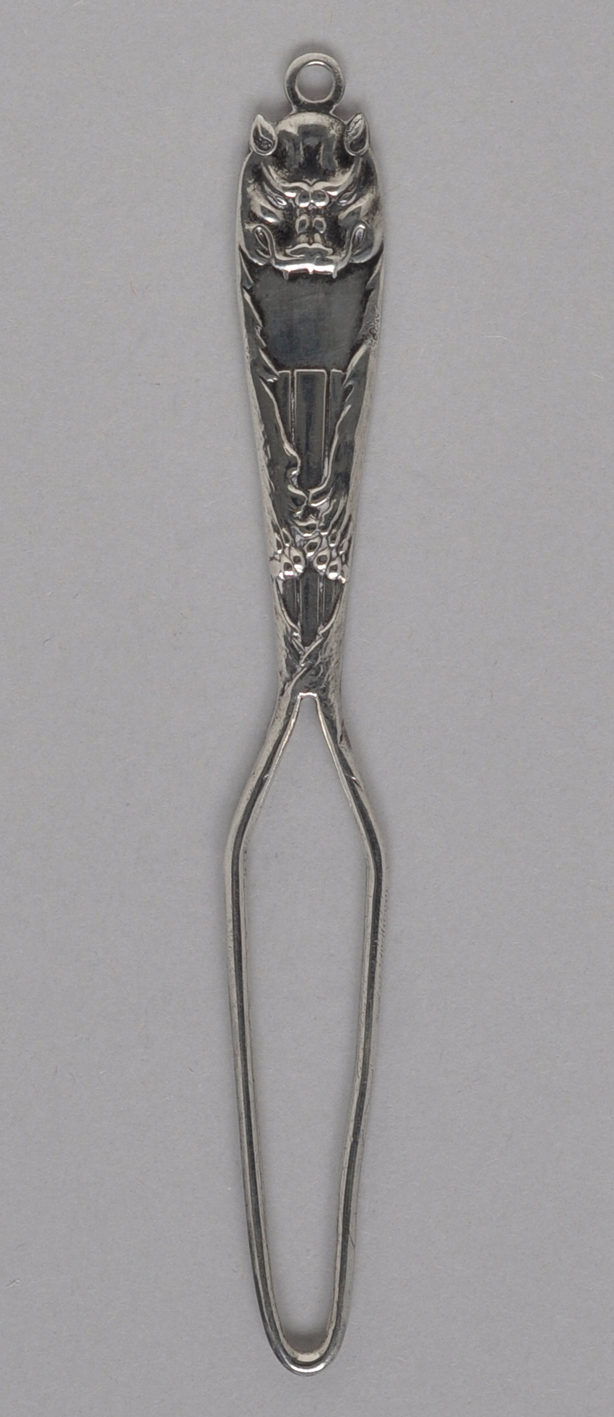 and I recall that havanna-dellirium then added a couple of posts, one including a number of images. Ian [This message has been edited by wessex96 (edited 11-03-2017).] IP: Logged |
|
Scott Martin Forum Master Posts: 11520 |
  
I may have found some images: IP: Logged |
|
Scott Martin Forum Master Posts: 11520 |
  
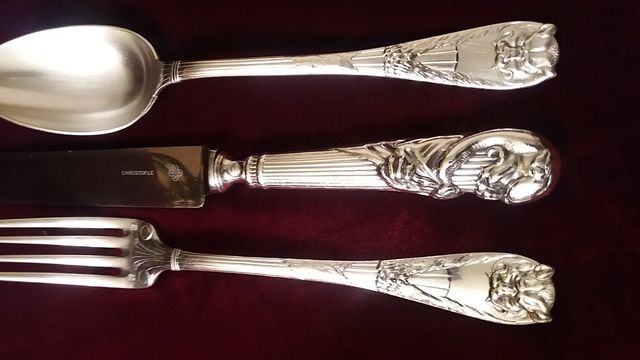 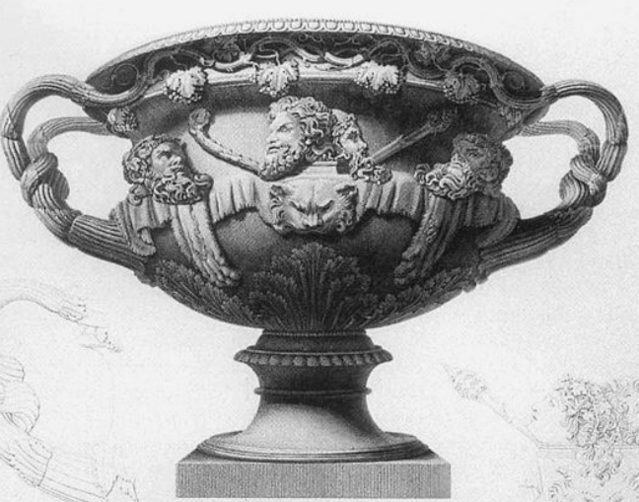 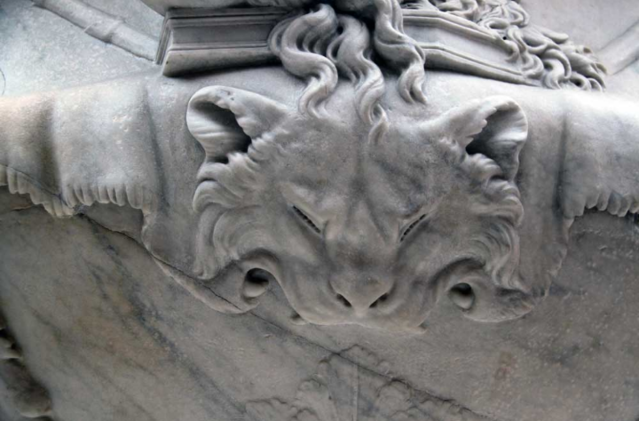 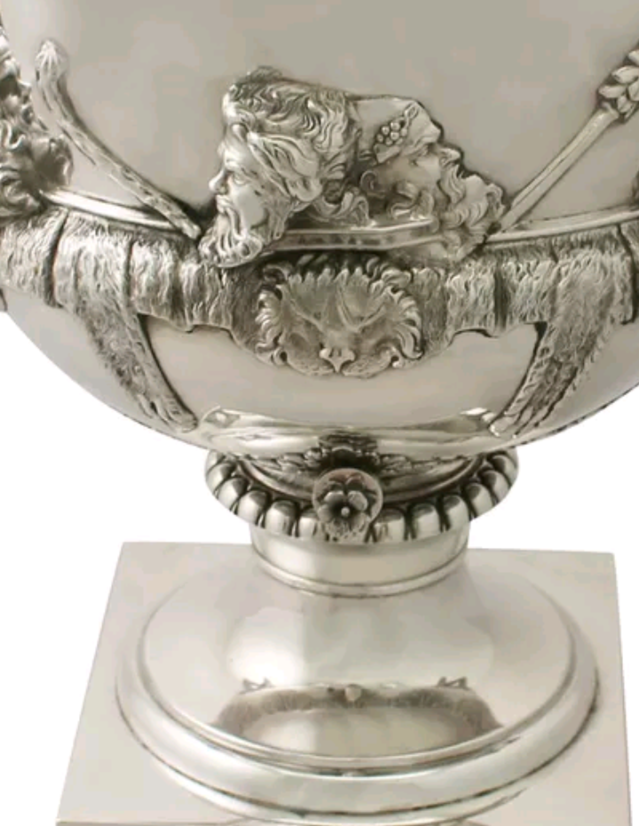 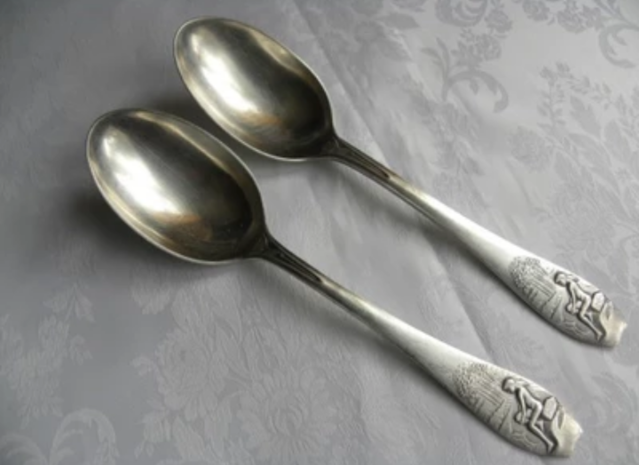 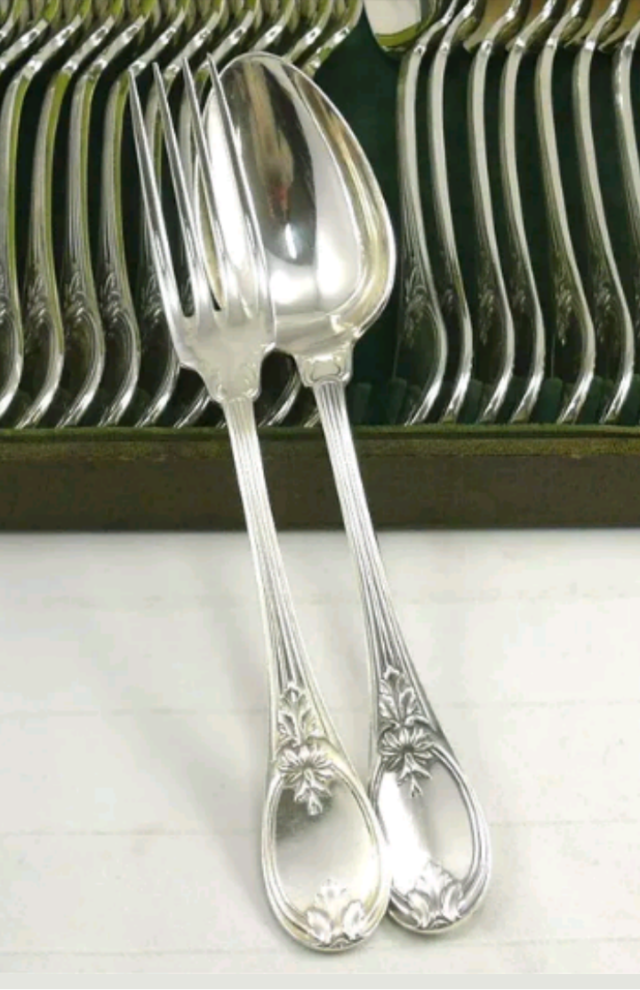 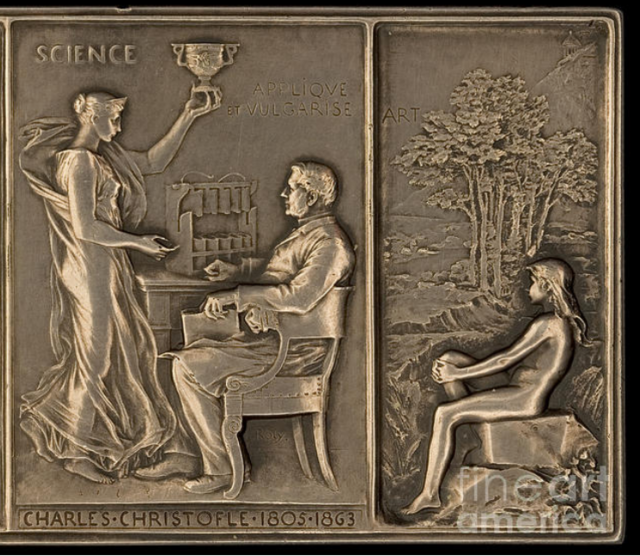 IP: Logged |
|
Scott Martin Forum Master Posts: 11520 |
  
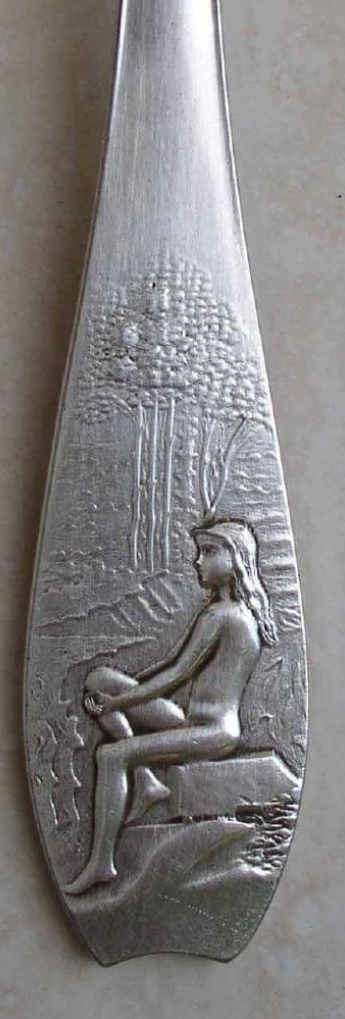 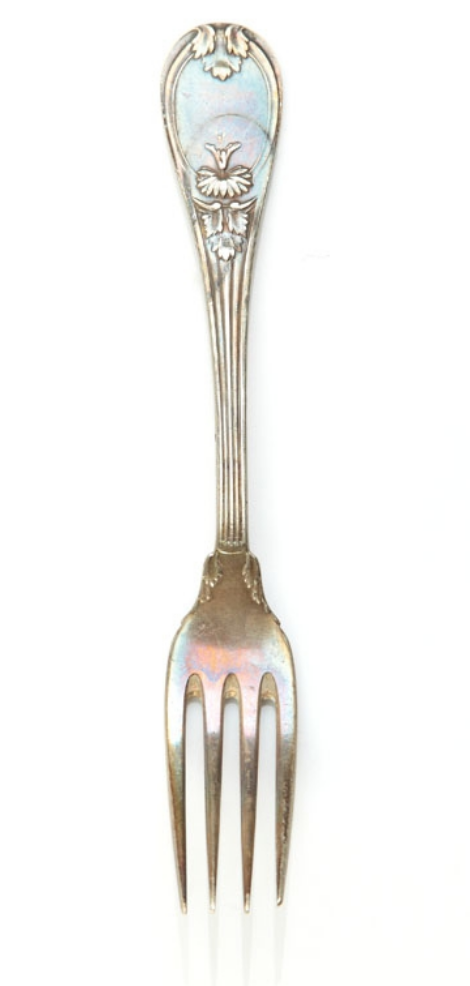 IP: Logged |
All times are ET | next newest topic | next oldest topic |
  |
|
Ultimate Bulletin Board 5.46a
|
1. Public Silver Forums (open Free membership) - anyone with a valid e-mail address may register. Once you have received your Silver Salon Forum password, and then if you abide by the Silver Salon Forum Guidelines, you may start a thread or post a reply in the New Members' Forum. New Members who show a continued willingness to participate, to completely read and abide by the Guidelines will be allowed to post to the Member Public Forums. 2. Private Silver Salon Forums (invitational or $ donation membership) - The Private Silver Salon Forums require registration and special authorization to view, search, start a thread or to post a reply. Special authorization can be obtained in one of several ways: by Invitation; Annual $ Donation; or via Special Limited Membership. For more details click here (under development). 3. Administrative/Special Private Forums (special membership required) - These forums are reserved for special subjects or administrative discussion. These forums are not open to the public and require special authorization to view or post. |
|
copyright © 1993 - 2022
SM Publications
All Rights Reserved. Legal & Privacy Notices |